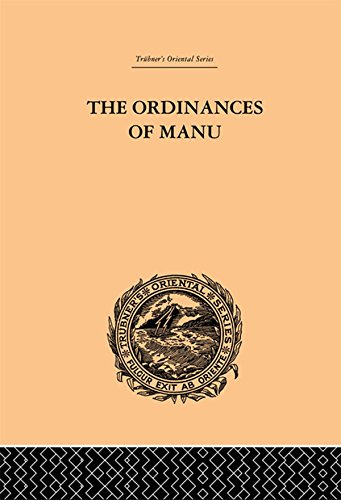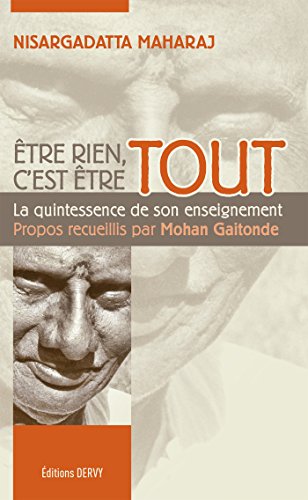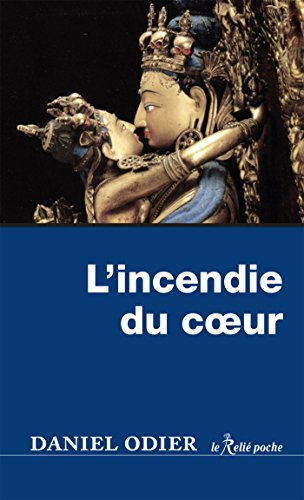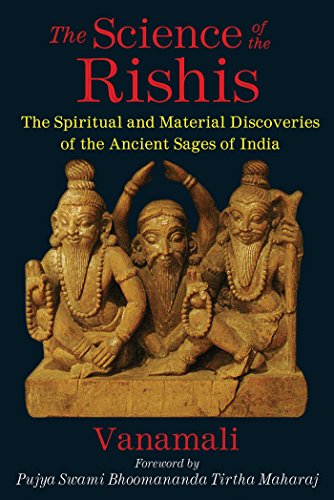
By Sheldon Pollock,Sumit Guha,Velcheru Narayana Rao,David Shulman,Sunjay Subrahmanyam
Contributors. Muzaffar Alam, Imre Bangha, Aditya Behl, Allison Busch, Sumit Guha, Janet Gyatso, Matthew T. Kapstein, Françoise Mallison, Sheldon Pollock, Velcheru Narayana Rao, Kurtis R. Schaeffer, Sunil Sharma, David Shulman, Sanjay Subrahmanyam, Mohamad Tavakoli-Targhi
Read or Download Forms of Knowledge in Early Modern Asia: Explorations in the Intellectual History of India and Tibet, 1500–1800 PDF
Similar hinduism books
The Ordinances of Manu: Translated from the Sanskrit: Volume 67 (Trubner's Oriental Series)
First released in 2000. Routledge is an imprint of Taylor & Francis, an informa company.
Être rien, c'est être tout : La quintessence de son enseignement (Yoga intérieur) (French Edition)
Nisargadatta Maharaj est un guru indien de los angeles doctrine de l'advaita vedanta ou non-dualité qui vécut de mars 1897 à septembre 1981. Son enseignement se healthy connaître en Occident notamment au travers du livre intitulé Je suis vendu à plusieurs milliers d'exemplaires en France. Il est considéré par nombre d'Occidentaux, intéressés par cette philosophie, comme l'un des grands sages hindous traditionnels de l'époque contemporaine à l'instar d'un Ramana Marashi lié à cette école du Vedanta Selon certains members à ses réunions, son enseignement se caractérisait par sa manière abrupte et sa simplicité, humble dans sa démarche, ne cherchant ni l. a. notoriété ni l. a. richesse.
L'incendie du coeur (French Edition)
Daniel Odier nous donne ici une traduction inédite des fifty three stances du Spandakârikâ ou "Chant du Frémissement", texte tantrique écrit au début du IXème siècle par l'un des grands yogis du Shivaïsme cachemirien. Il disclose une philosophie et une pratique de méditation essentielle, le Mahamudra, pratique qui rejoint par ses préceptes le ch'an chinois, le zen japonais et le dzogchen tibétain.
The Science of the Rishis: The Spiritual and Material Discoveries of the Ancient Sages of India
An entire advent to Sanatana Dharma, the religious technological know-how of the Hindu sages • Examines what number middle techniques of Hinduism, together with Brahman, Atman, bhakti, karma, and reincarnation, relate to trendy technological know-how • Explores the medical discoveries of the rishis, old Vedic sages, and the way they've got just recently been rediscovered through Western scientists • finds the techniques of quantum physics hidden in the Vedas, the Bhagavad Gita, the Upanishads, and the Puranas referred to as “the scientists of Hinduism,” the rishis of historical India have been the scribes of the Vedas.
- Sadhana: The Path to Enlightenment: Volume 2 (Yoga the Sacred Science)
- Kundalini Rising
- The Nay Science: A History of German Indology
- Introduction aux Yoga-sûtras de Patanjali: Yoga-Sara-Samgraha (French Edition)
Additional resources for Forms of Knowledge in Early Modern Asia: Explorations in the Intellectual History of India and Tibet, 1500–1800
Sample text



